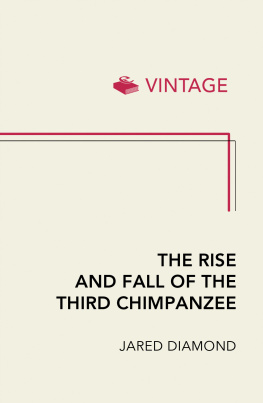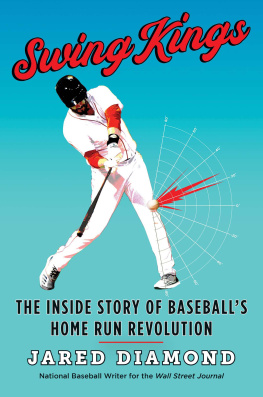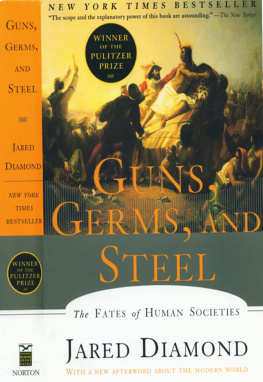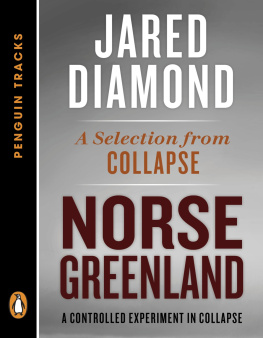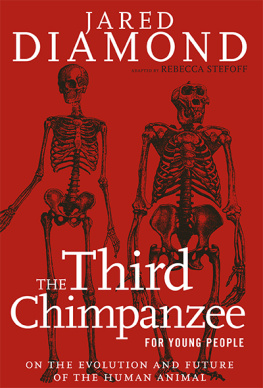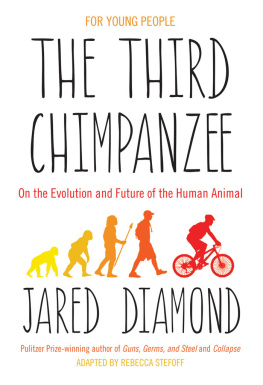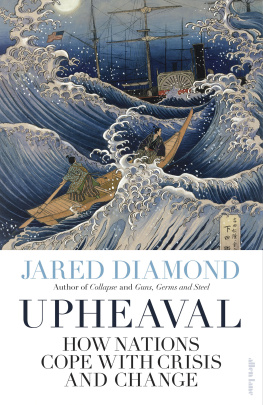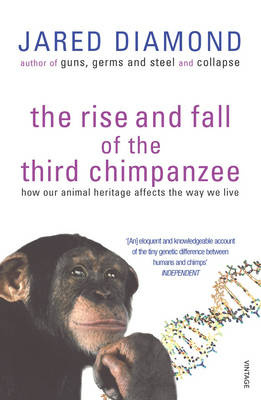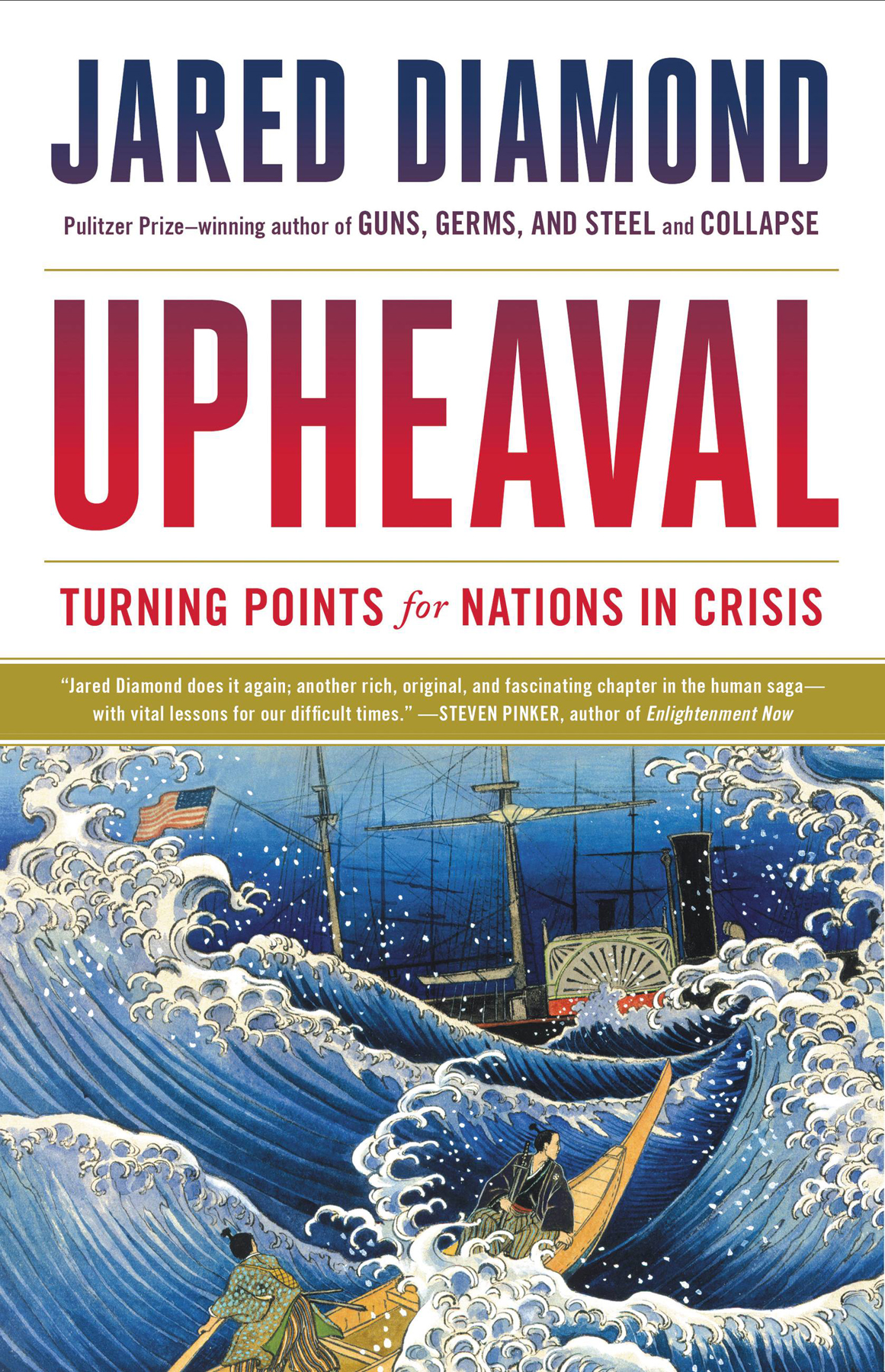Two storiesWhats a crisis?Individual and national crisesWhat this book is and isntPlan of the book
A t one or more times during our lives, most of us undergo a personal upheaval or crisis, which may or may not get resolved successfully through our making personal changes. Similarly, nations undergo national crises, which also may or may not get resolved successfully through national changes. There is a large body of research and anecdotal information, built up by therapists, about the resolution of personal crises. Could the resulting conclusions help us understand the resolution of national crises?
To illustrate personal and national crises, Ill begin this book with two stories from my own life. Its said that a childs earliest datable firm memories are laid down from around the age of four years, although children also retain indistinct memories of earlier events. That generalization does apply to me, because the earliest memory that I can date is of Bostons Cocoanut Grove fire, which happened just after my fifth birthday. Although (fortunately) I was not at the fire myself, I experienced it second-hand through the frightening accounts of my physician father.
On November 28, 1942, a fire broke out and spread rapidly through an overcrowded Boston nightclub called Cocoanut Grove (the owners spelling), whose sole exit became blocked. A total of 492 people died, and hundreds of others were injured, by suffocation, smoke inhalation, or being trampled or burned (Plate 0.1). Boston physicians and hospitals were overwhelmednot just by the wounded and dying victims of the fire itself, but also by the fires psychological victims: relatives, distraught that their husbands or wives or children or siblings had died in a horrible way; and the fires survivors, traumatized by guilt, because they had survived while hundreds of other guests had died. Until 10:15 P.M., their lives had been normal, and focused on celebrating the Thanksgiving holiday weekend, a football game, and wartime leaves of soldiers. By 11:00 P.M., most of the victims were already dead, and the lives of their relatives and of the survivors were in crisis. Their expected life trajectories had been derailed. They felt ashamed that they were alive while a dear one was dead. The relatives had lost someone central to their identity. Not only for the fires survivors but also for Bostonians remote from the fire (including me as a five-year-old), the fire shook our faith in a world of justice. Those punished werent naughty boys and evil people: they were ordinary people, killed through no fault of their own.
Some of those survivors and relatives remained traumatized for the rest of their lives. A few committed suicide. But most of them, after an intensely painful several weeks during which they could not accept their loss, began a slow process of grieving, reappraising their values, rebuilding their lives, and discovering that not everything in their world was ruined. Many who had lost spouses went on to remarry. Even in the best cases, though, decades later they remained mosaics of their new identities formed after the Cocoanut Grove fire, and of their old identities established before the fire. We shall have frequent opportunity throughout this book to apply that metaphor of mosaic to individuals and nations in whom or in which disparate elements coexist uneasily.
Cocoanut Grove provides an extreme example of a personal crisis. But it was extreme only in that bad things befell a large number of victims simultaneouslyin fact, so many victims that the fire also provoked a crisis demanding new solutions in the field of psychotherapy itself, as well see in Chapter 1. Many of us experience individual tragedy first-hand in our own lives, or second-hand through the experiences of a relative or a friend. Yet such tragedies that strike only one victim are as painful to that victim, and to his or her circle of friends, as Cocoanut Grove was to the circles of its 492 victims.
Now, for comparison, here is an example of a national crisis. I lived in Britain in the late 1950s and early 1960s, at a time when it was undergoing a slow national crisis, although neither my British friends nor I fully appreciated it then. Britain was world-leading in science, blessed with a rich cultural history, proudly and uniquely British, and still basking in memories of having had the worlds largest fleet, the greatest wealth, and the most far-flung empire in history. Unfortunately, by the 1950s Britain was bleeding economically, losing its empire and its power, conflicted about its role in Europe, and struggling with long-standing class differences and recent waves of immigrants. Things came to a head between 1956 and 1961, when Britain scrapped all of its remaining battleships, experienced its first race riots, had to begin granting independence to its African colonies, and saw the Suez Crisis expose the humiliating loss of its ability to act independently as a world power. My British friends struggled to make sense of those events, and to explain them to me as an American visitor. Those blows intensified discussions, among the British people and British politicians, about Britains identity and role.
Today, 60 years later, Britain is a mosaic of its new self and its old self. Britain has shed its empire, become a multi-ethnic society, and adopted a welfare state and high-quality government-run schools to reduce class differences. Britain never regained its naval and economic dominance over the world, and it remains notoriously conflicted (Brexit) about its role in Europe. But Britain is still among the worlds six richest nations, is still a parliamentary democracy under a figurehead monarch, is still a world leader in science and technology, and still maintains as its currency the pound sterling rather than the euro.
Those two stories illustrate this books theme. Crises, and pressures for change, confront individuals and their groups at all levels, ranging from single people, to teams, to businesses, to nations, to the whole world. Crises may arise from external pressures, such as a person being deserted or widowed by his or her spouse, or a nation being threatened or attacked by another nation. Alternatively, crises may arise from internal pressures, such as a person becoming sick, or a nation enduring civil strife. Successful coping with either external or internal pressures requires


